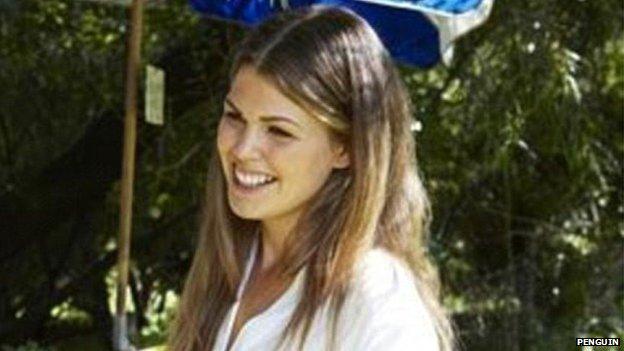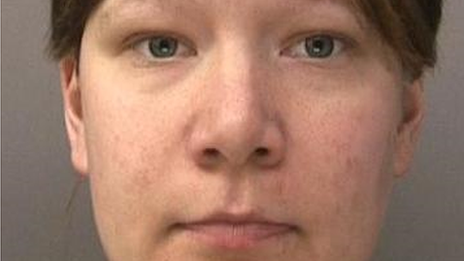Australian health blogger admits faking terminal cancer
- Published

Belle Gibson claimed to have suffered from several different cancers
An Australian "wellness" blogger who built a successful business on claims she survived terminal cancer has admitted she never had the disease.
"None of it's true", Belle Gibson told Australia's Women's Weekly magazine in an interview.
Ms Gibson chronicled her battle with cancer on a blog, The Whole Pantry, which spawned an app and recipe book
But doubts about her claims surfaced after she failed to deliver a promised $300,000 donation to charity.
"I am still jumping between what I think I know and what is reality," Ms Gibson said in the interview, her first since the story was called into question.
"I have lived it and I'm not really there yet," she said.
'I don't want forgiveness'
Ms Gibson rose to prominence in 2013 after claiming she was treating her malignant brain cancer with whole foods and alternative therapies.
She went on to build a huge following on social media for her recipes and so-called "wellness" tips.
But when pressed to show medical records to back up her story, she refused.
"I don't want forgiveness," Ms Gibson told Woman's Weekly, adding that she was speaking out because it was "the responsible thing to do".
"Above anything, I would like people to say, 'Okay, she's human.'"
The reasons for her actions remain largely unexplained - she gave few details about why she lied so publicly, apart from referring to a "troubled" childhood.
Woman's Weekly speculated that she might be suffering from a psychological disorder in which people seek attention by faking illness.

Why do people make up illnesses?
There is a psychological condition called factitious disorder in which a person deliberately and consciously acts as if he or she has a physical or mental illness, including creating or exaggerating symptoms.
Melissa Keogh, a clinical psychologist in Melbourne, says: "People who are healthy and well-adjusted don't have to create illnesses to get attention or for financial gain.
"People who do this kind of thing - it usually comes back to early childhood trauma or distress. If you trace it back, there is usually some kind of attachment disorder."
Ms Keogh says to the layperson it may look like fraud, but in many cases there are some underlying psychological conditions, including a personality disorder or elements of narcissism.

Ms Gibson's recipe book was withdrawn by Penguin in March and her app was removed by Apple from its online store.
Ahead of the interview's publication on Thursday, the magazine said the blogger had "cried easily and muddled her words" whenever challenged.
"She says she is passionate about avoiding gluten, dairy and coffee, but doesn't really understand how cancer works," it said.
Ms Gibson's partner, Clive Rothwell, did not know about her deception, according to Australia's News Ltd, which appeared to have obtained the full interview ahead of publication.
She said he was "supportive, but obviously very devastated", according to the site.
Related topics
- Published9 January 2014
